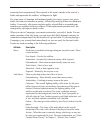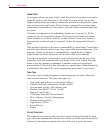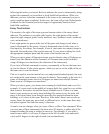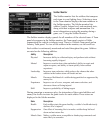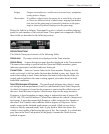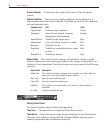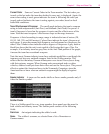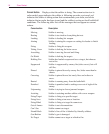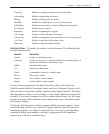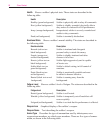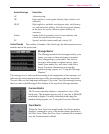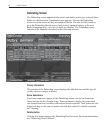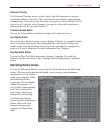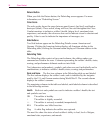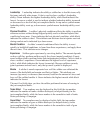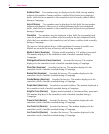
Chapter 2 Setup and Game Play
25
Crawling Soldier is crawling toward cover or destination.
Ambushing Soldier is ambushing the enemy.
Hiding Soldier is hiding from the enemy.
Bad Shot Soldier has a shot that is a waste of ammunition.
In Building Soldier (mortar team) is inside building and cannot fire.
No Weapon Soldier has no weapon.
Repairing Soldier is repairing his weapon.
Can’t Target Target is outside the gun’s firing arc.
Conserving Soldier is running low on ammunition so he’s conserving it.
Too Close Soldier is too close to the target to fire.
Separated Soldier is separated from his team.
Function in Team
Describes the soldier’s role on the team. The following table
lists the team functions.
Function Description
Leader Leader of an infantry team
Assistant Assists the driver of a vehicle and fires bow machine gun or is
second in command on an infantry team
Soldat German infantryman
G.I. American infantryman
Cmdr. Commander; leader of a vehicle team
Driver Driver of a vehicle
Gunner Fires vehicle’s main weapon
Loader Loads vehicle’s main weapon
The next three components of the panel describe a soldier’s physical state
(Health), mental stability (Emotional State), and level of fatigue (Fatigue Level).
Only one factor determines a soldier’s physical state: being wounded. The factor
that determines a soldier’s level of fatigue is also simple
physical exertion. For
example, if you issue a command to a heavy mortar team to move fast for a long
distance, the team will be tired when they complete the move. Extended combat
also fatigues soldiers.
The factors that determine a soldier’s mental stability are more complex. Good
team leadership, team success, and lack of suppression fire from the enemy all
contribute positively to a soldier’s emotional state. Conversely, bad leadership,
wounded or killed team members, and heavy suppression fire all contribute
negatively to a soldier’s emotional state.



